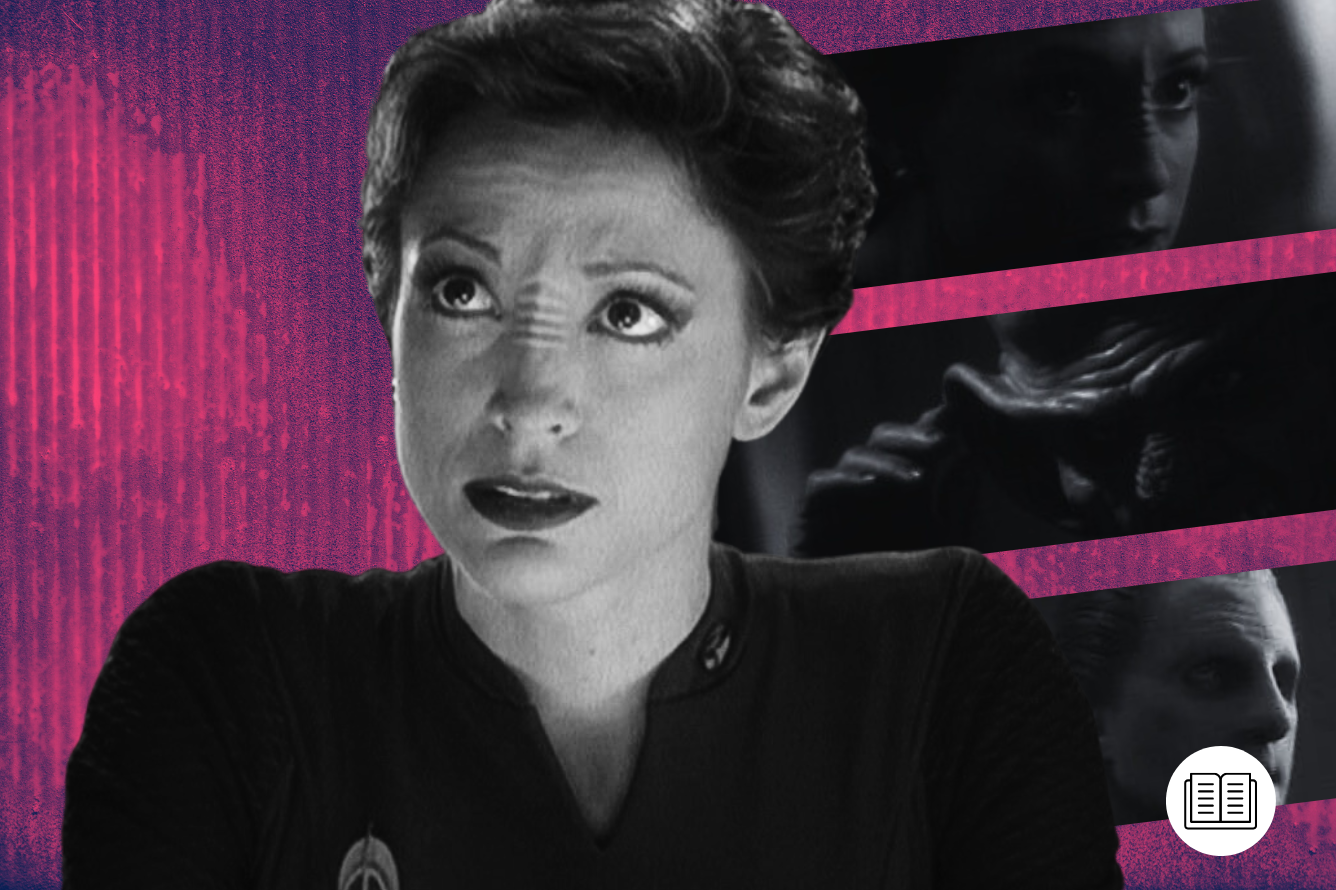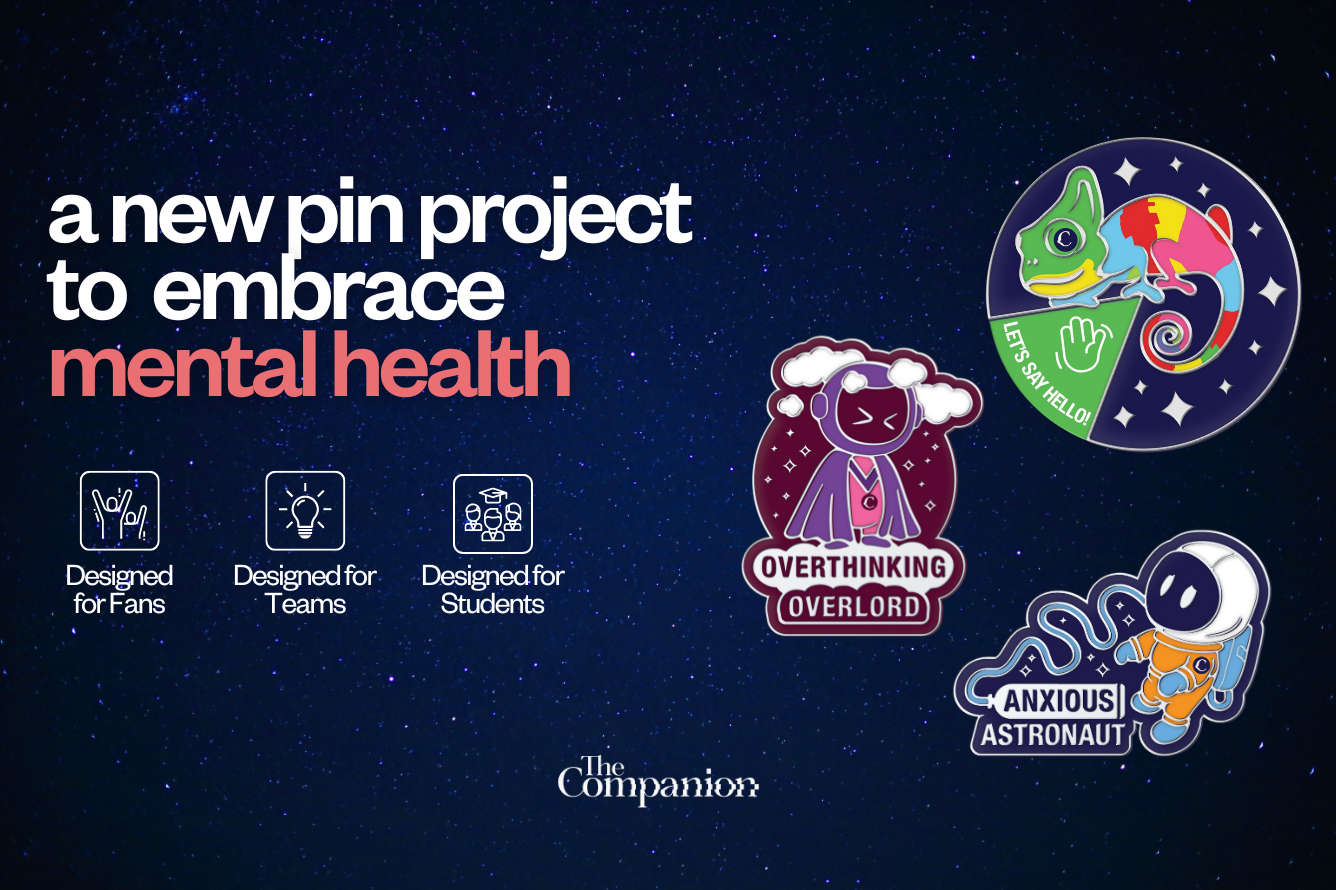The fact that Star Trek: Deep Space Nine came loaded with decades of backstory was one of its greatest opportunities and obstacles. Sisko’s appointment on the former Cardassian mining station Terok Nor only existed because an occupation of the deeply spiritual developing world of Bajor had come to an end, and several of our main cast accompanied Starfleet from Bajor or the ostensibly neutral position of non-Cardassian, holdover staff (hello, Odo and Quark). There is no DS9 without this one, extensive stretch of lore – the occupation defines the show.
Like any good drama, the show capitalizes on this history with rich, conflicted characters. Kira (Nana Visitor), Odo (René Auberjonois), Garak (Andrew J. Robinson) – all those whose time on DS9 goes further back than ‘The Emissary’ (S1, Ep1) get plenty of introspection on the changing power dynamics of their place of work. This mix of emotions and diplomacy pays off beautifully when the Dominion takes back Terok Nor, and it’s up to our long-term residents to take it back – you can take the Starfleet out of DS9, but you can’t take the Starfleet out of its crew.
The way we glimpse at the massive, unwieldy nature of the Bajoran occupation is through history becoming relevant again to the stories on DS9. The past resurges, invading and impressing itself in the here-and-now, and the characters with personal connections feel its presence more keenly than those of Starfleet. For characters on both sides of the occupation, there are times when the past vindicates and justifies their action in the present; there are times when they’d rather it stayed buried. The Bajoran-Cardassian treaty, the liberation of a planet, the safety of Starfleet’s arrival – these are huge, bold changes that affect whole species, but they don’t necessarily absolve or shed a light on all the tiny complications that fill a personal relationship with a dangerous, traumatic era.
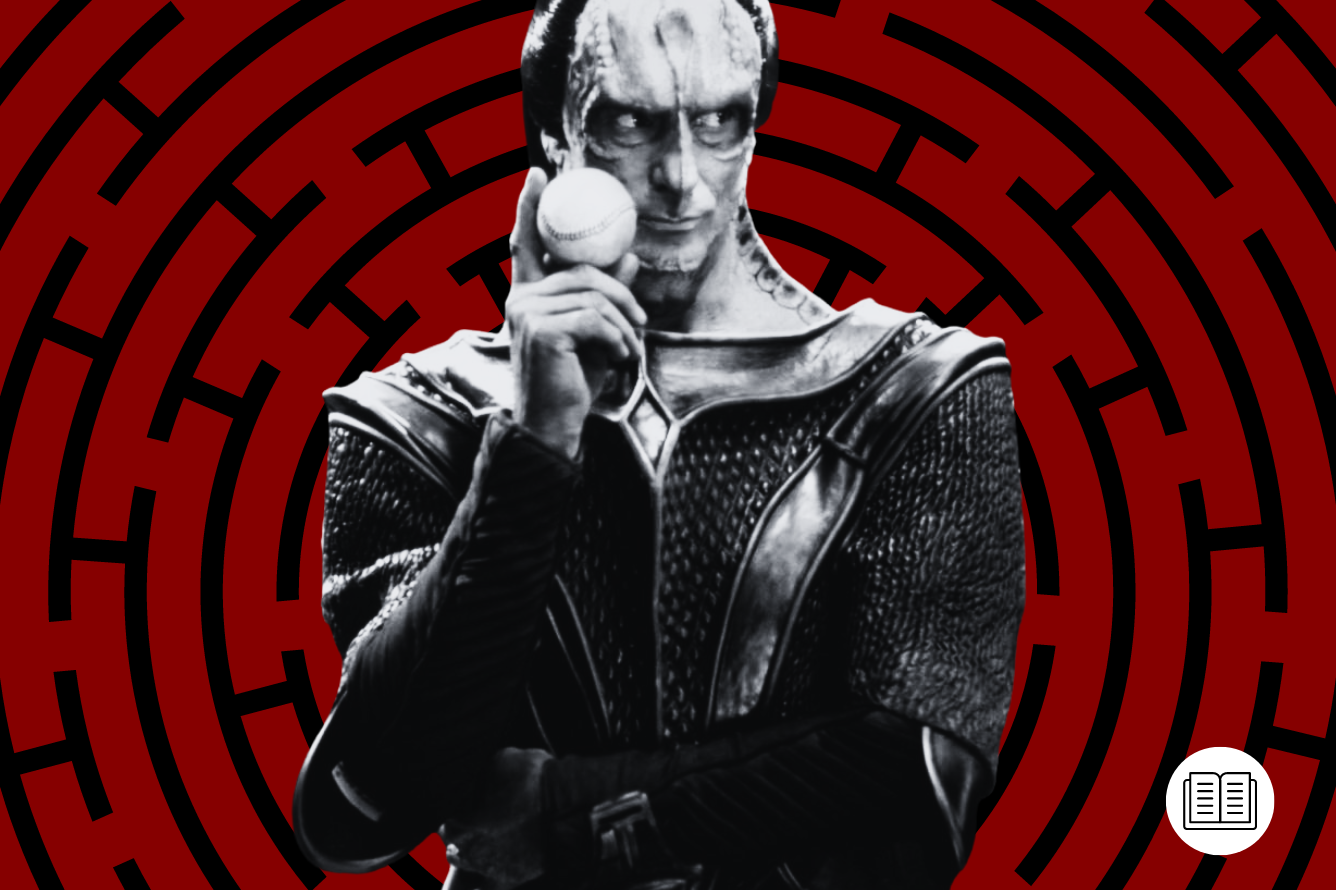
Just like all of Star Trek’s aliens, the Cardassians serve as a reflection of periods of human history or offshoots of ways our culture and politics could have developed. They’re a shrewd, brutal military empire taken from Stalin’s Soviet Union, Nazi Germany, Fascist Italy, Imperial Japan, and the British Empire to name just a few. They’re a distorted mirror through which we can theorize what human society could look like if there were fewer objections to its darker tendencies. (This may seem obvious, but sometimes you read a 3,000-word article on how Cardassia reflects humanity without the word “fascism” appearing once, and suddenly you’re not so sure.)
If the Cardassians are pulled from human fascists and empires, the 1990s gave an extensive source of contemporary crises to influence the Bajoran occupation. As Ira Steven Behr says, “There was the Middle Eastern conflict, Lebanon was a big hot topic, tons of things, the Northern Ireland thing came up too, so I would say it's not based on any of them and it’s based on all of them.” As in, nothing in DS9 is a 1-to-1 allegory, rather these influences are used as a stepping stone to interrogate humanity. The more we learn about the occupation, the more we appreciate how backward the future can be.
Major Kira and ‘Necessary Evil’
Few experiences of this period are more emotionally complex than that of Kira Nerys. A Bajoran survivor of Cardassia’s occupation, and a committed insurgent in the Bajoran resistance, Kira’s new position of authority aboard DS9 validates those years of jeopardy and sacrifice, but it’s not like everything she did then was absolved or even brought to light when the treaty was signed. Starfleet could never condone the extent of Kira and her cell’s subterfuge and violence, especially in its more shamefully barbaric moments. Her relationship with Gul Dukat (Marc Alaimo), a man forced through a shameful reappraisal of Cardassia’s dwindling dominance before plunging into madness before he can truly soften, makes for an enlightening study.
This is someone she only regards with hatred and disgust, who she must now work alongside as often as against, performing to Starfleet’s standards while representing her planet’s best interests. He knows her experience of the occupation more than anyone else, having enforced the suffering she fought against, and this recognition instills an unsettling closeness between their characters. (This is also seen in Dukat’s growing attraction to Kira, something that actor Nana Visitor always fought hard against ever being reciprocated.) But with every successive beat in their parallel arcs, Kira was confronted with the desire, and sometimes the necessity, to forget uncomfortable truths in a quest to forge a just and brighter future.
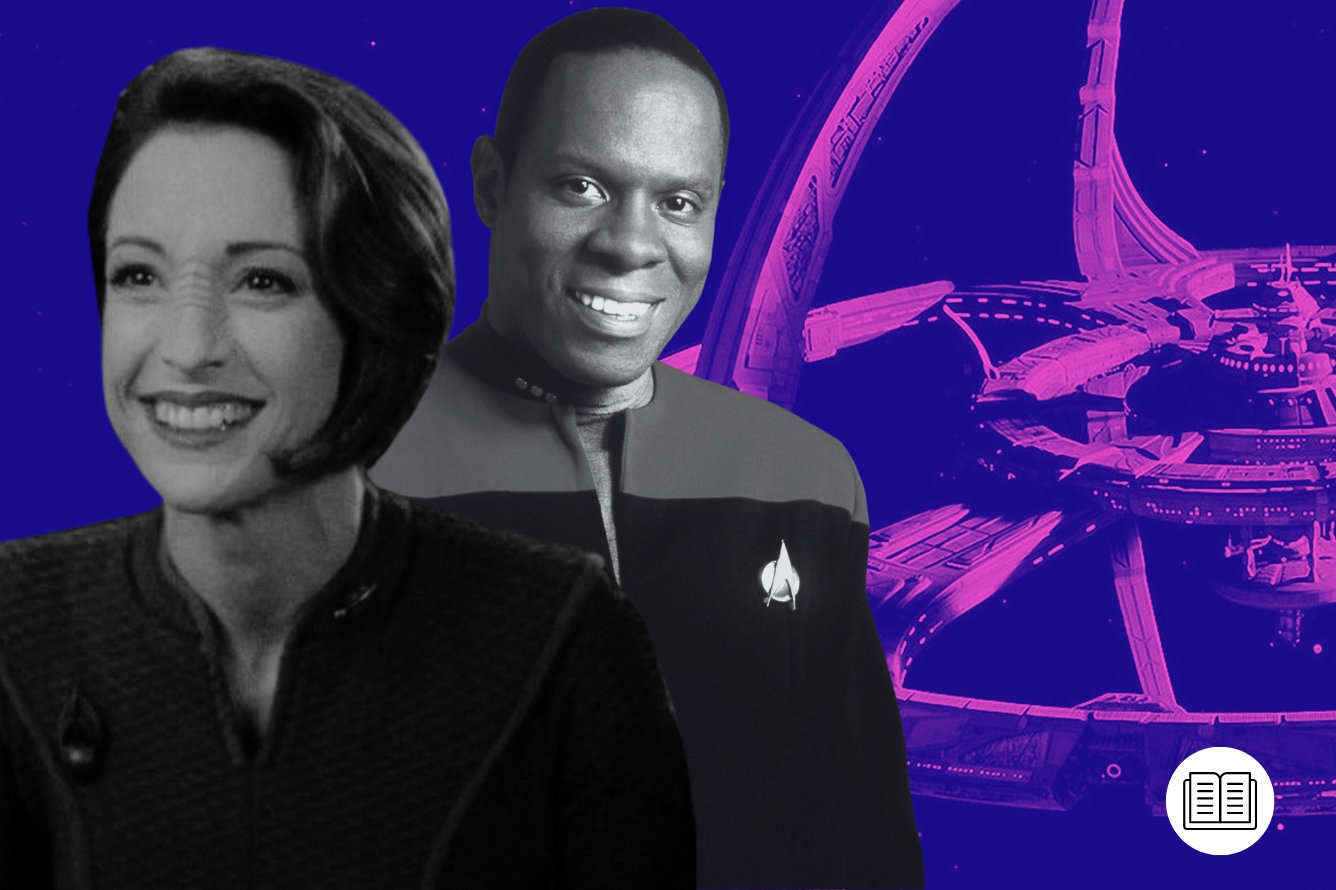
Our direct glances into occupation are scant, but three episodes mark turning points in Kira’s relationship with suppressing the past. Season 2’s ‘Necessary Evil’ (S2, Ep8), a golden standout in early DS9 akin to Season 1’s ‘Duet’ (S1, Ep18) (the episodes share a director), leans hard into noir as Odo, sermonising in a hard-boiled detective voiceover, tries to figure out who shot Quark in the chest in his bar (it was Season 2, this stuff happened). Curiously, he notes that his memory is a much more reliable archive than recording a log, a reflection that’s especially resonant in an episode about what we choose to forget. Rom points Odo towards a missing list of Bajoran names, and before we know it, we’re back in time on Terok Nor, when Dukat first enlists Odo’s help as a police constable to discover who killed a Bajoran chemist, Vaatrik (deviating from the usual Cardassian justice of executing 10 random Bajorans). The station is filled with shadows, dingy lighting, and cluttered, colorless sets; it’s a striking and atmospheric transformation of the DS9 we know. When Vaatrik’s widow points out the woman her husband was having an affair with, we jump back to the present to see the same person five years on – it’s Kira. Vaatrick’s murder is mentioned; whatever happened to Quark is bringing it back up, whether they can help it or not.
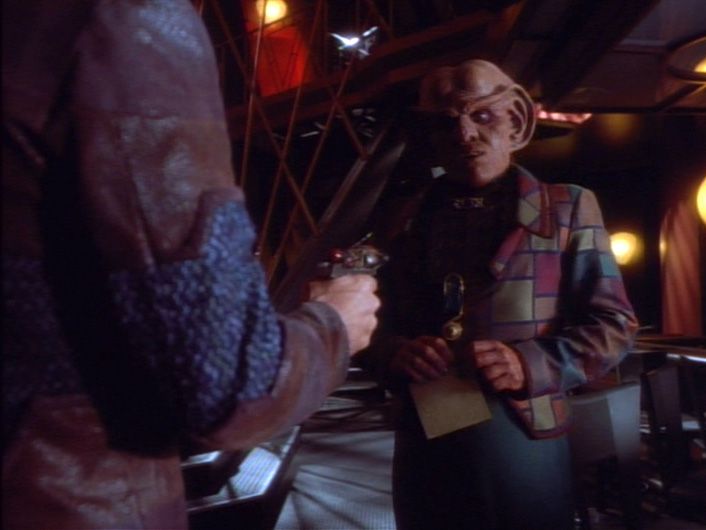
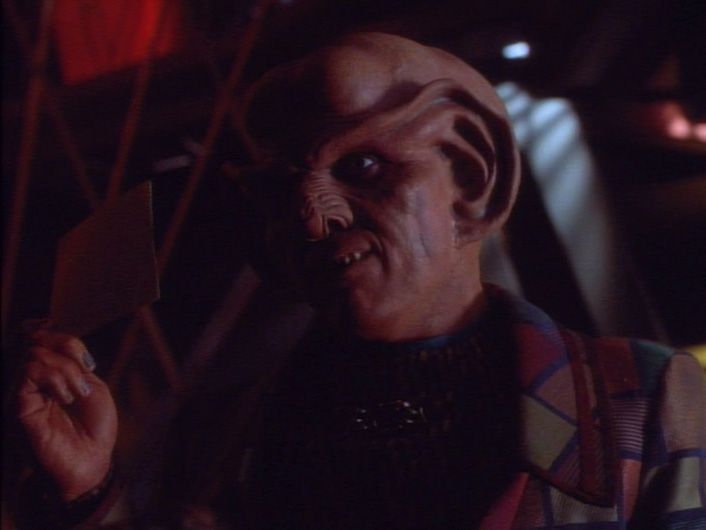
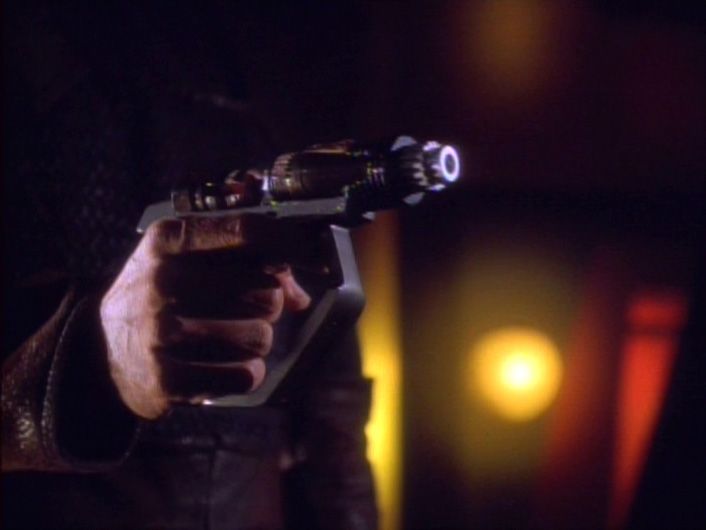
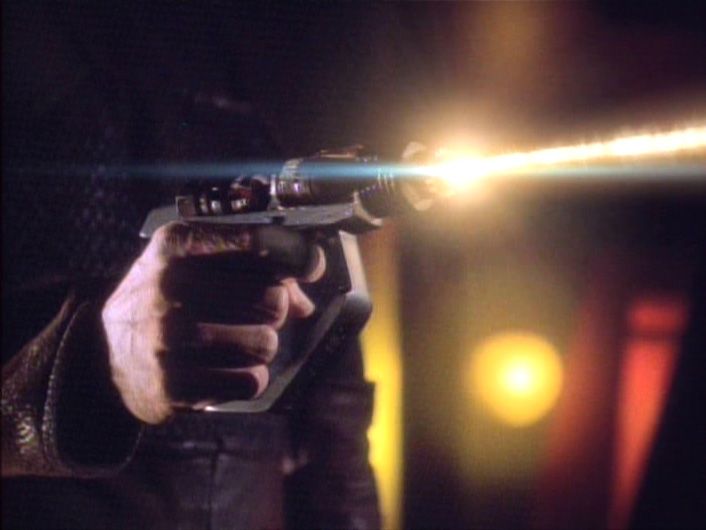
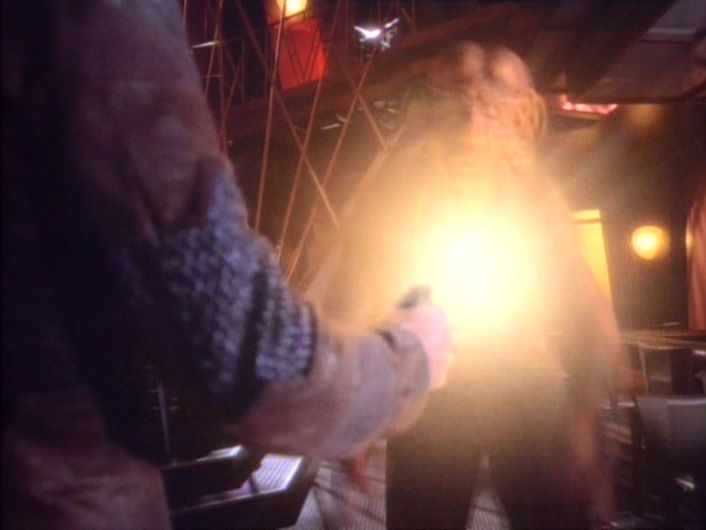
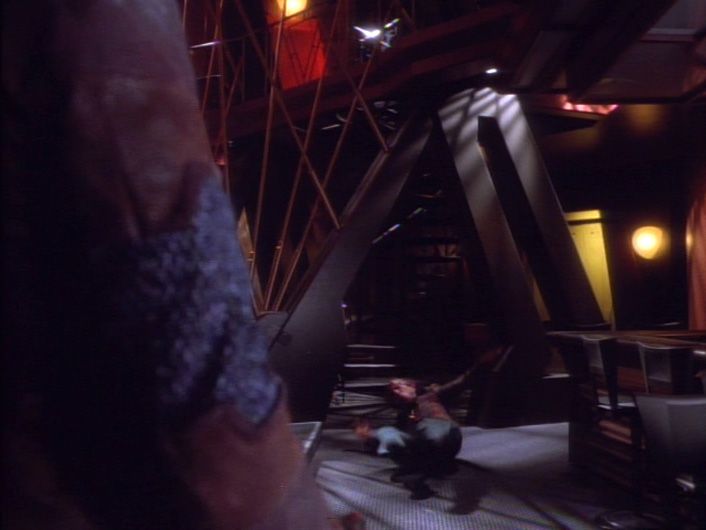
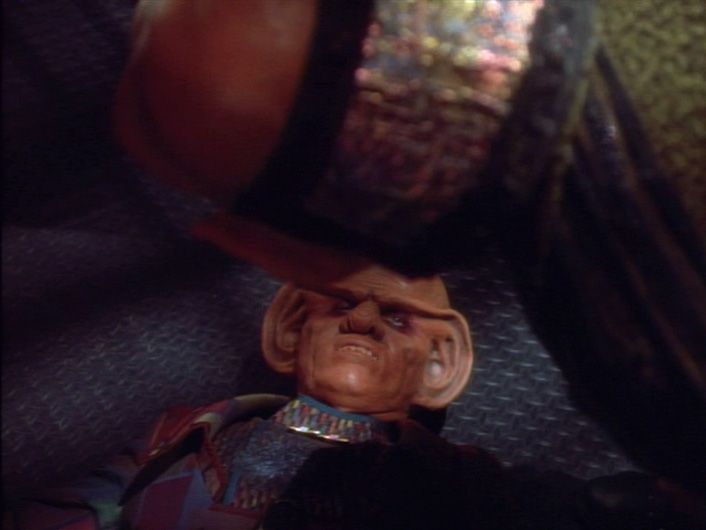
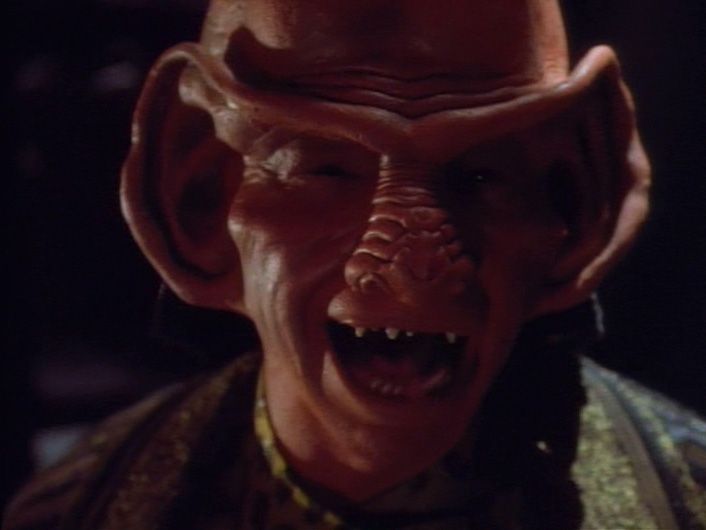
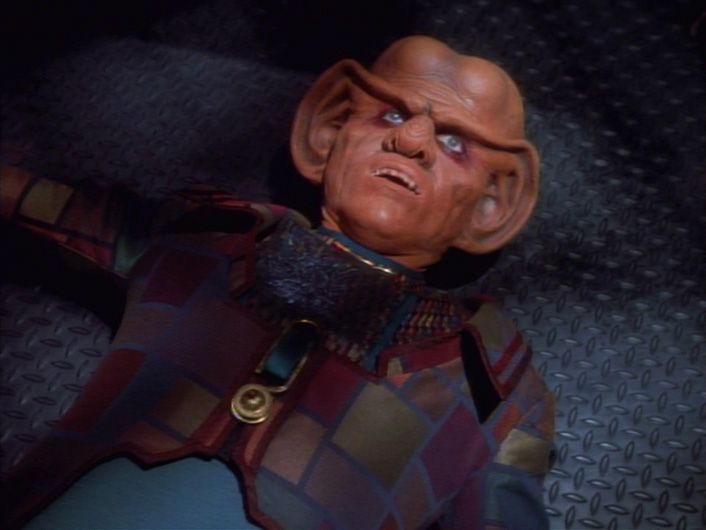
The list dates back to the occupation, the names are Cardassian collaborators. As Odo plumbs into the past – René Auberjonois delivers a terrific performance as Odo meets Dukat, Kira, and Quark all for the first time – he realizes that Kira was responsible for Vaatrik’s murder, having killed him while trying to steal the list. They stand in Odo’s office, upright in uniform, and level with the fact that Odo’s first allegiance with Bajor, the Resistance, and anti-Cardassian forces was when he concealed a murder perpetrated by a new friend. Why didn’t she tell him before? Were they both resisting the inevitability of this discovery? Are they compelled to do something about this recently solved crime? “I tried to tell the truth a hundred times,” she confesses. “What you think of me matters a lot.” When she asks if Odo can ever trust her again, he hangs his head in silence. It’s too much to ask. The episode ends.
Nana Visitor shares this appreciation for this lack of definitive closure. “Odo doesn't trust me the way he did and he never will, and that's so truthful to me. That's real life, and that's one of the things this show does very well. It doesn't tie things up in nice, neat little bows for the audience. It gives them more credit than that.” Just as an old mystery resolves itself, a new, deeper wound has been opened. It’s not a question of whether or not Kira’s actions were justified; few of us have undergone the soulfully taxing experience of living under occupation, and it would be disingenuous to argue we could ever pass judgment. It’s just what it is – a change to a relationship that’s utter hell to sit with.
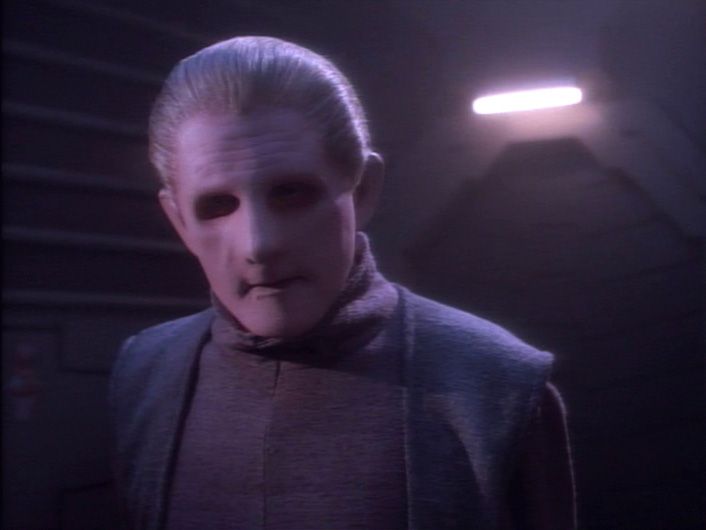
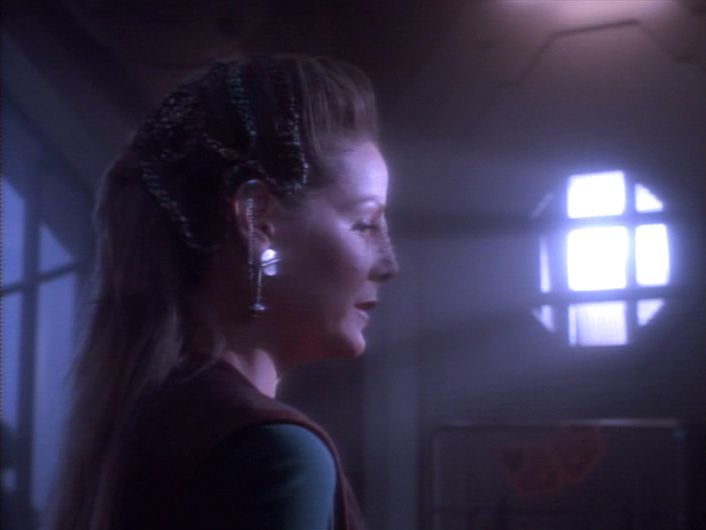
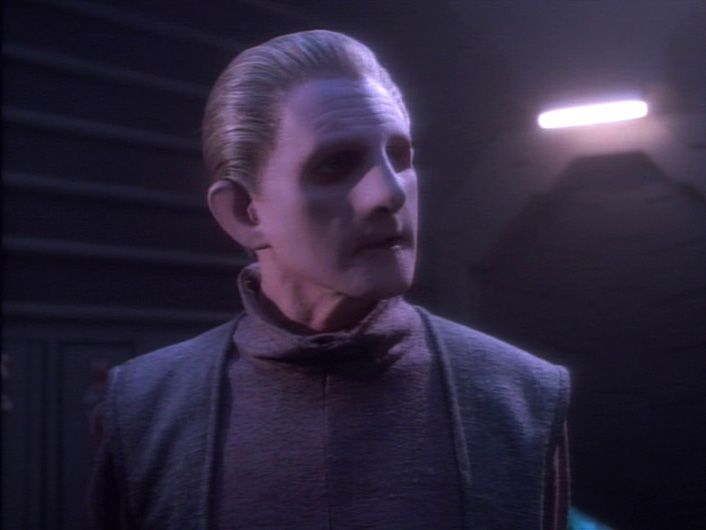
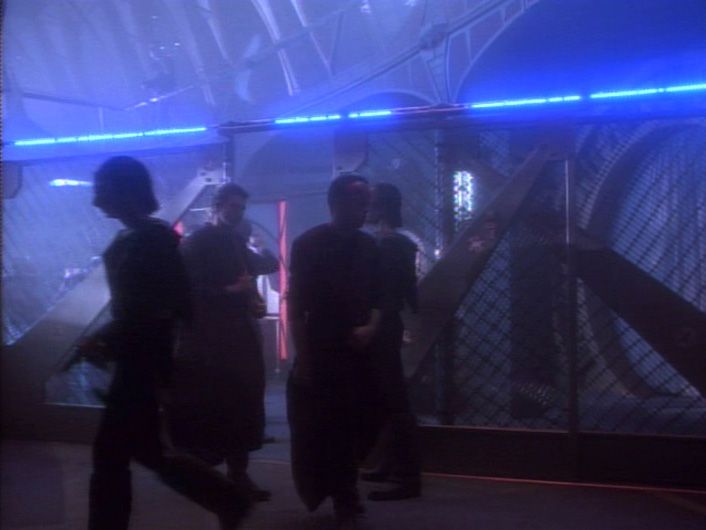
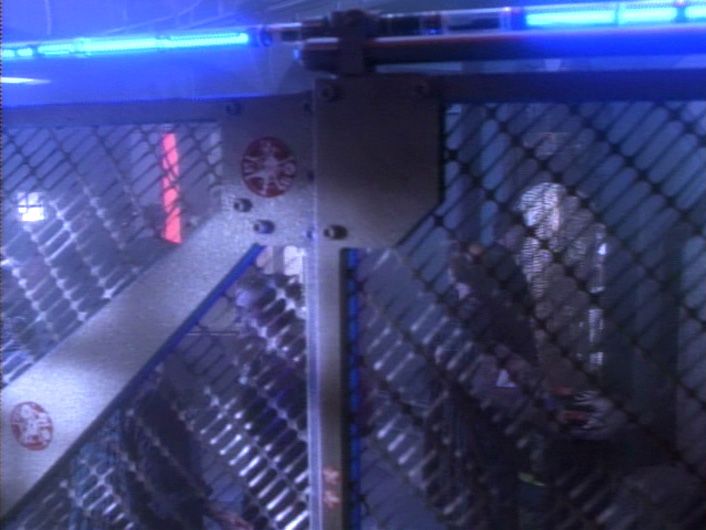
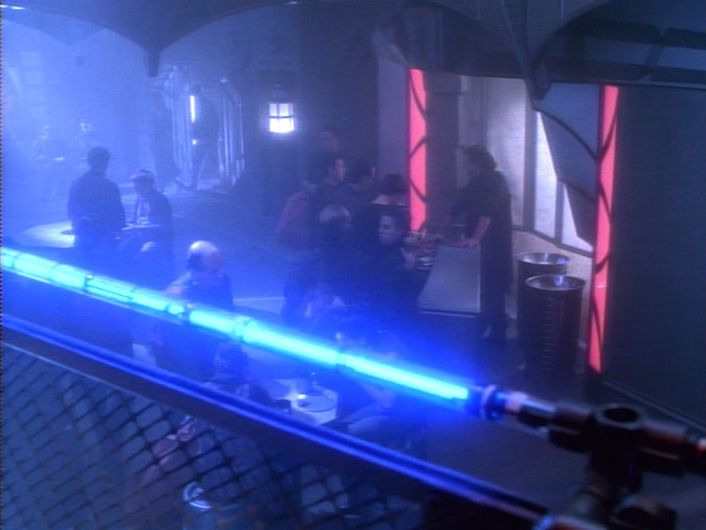
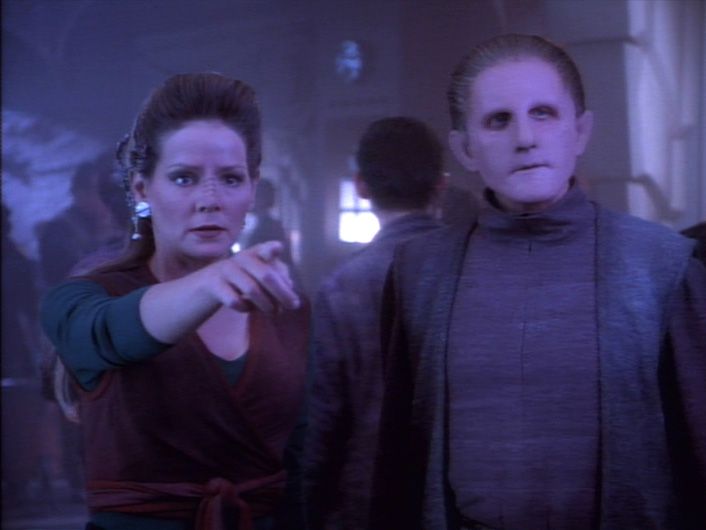
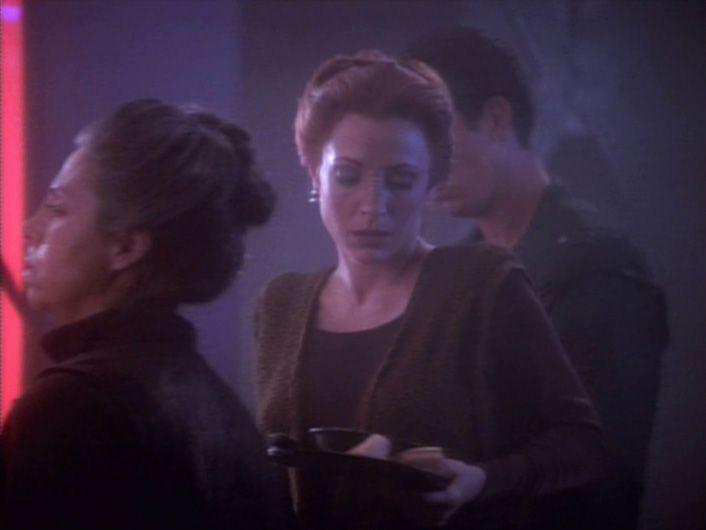
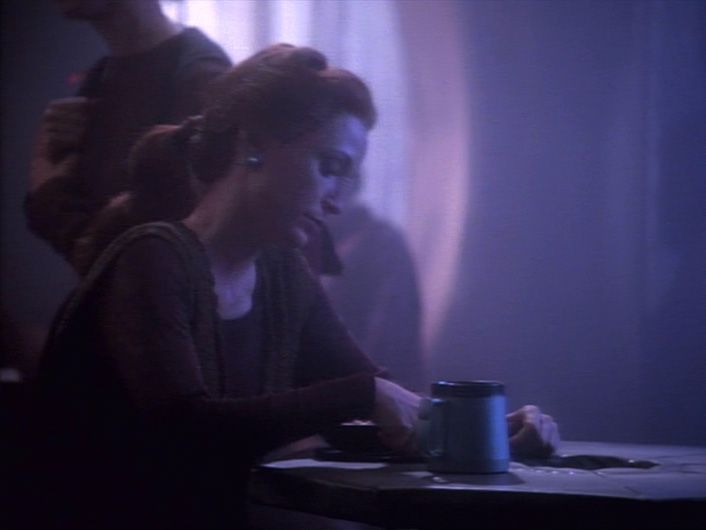
The brilliance of DS9 is that it approaches complex situations as seen in ‘Necessary Evil’ not as an opportunity to sit around and discuss its ethics, but internalizes such debates in a character who’s not qualified to make a final judgment. How does Odo, a man who recognizes the Founders’ instinct for justice inside him, know what choices were moral during that time? And yet Kira must put a defining moment in her political life in the hands of the most law-abiding person she knows, who happens to be a close friend. The discomfort Kira feels is less to do with guilt over Vaatrik’s murder – she’s done enough time living with that – but because she knows how it looks when exposed to an outsider, to a friend who values righteousness above all.
You can trust matters like Vaarik’s murder will be lost in the perpetually awkward diplomatic shuffle of regime change, but it’s going to stay in Kira and Odo’s minds forever. Of course, the next episode starts, a new crisis emerges, DS9 boldly continues without immediately referencing this seismic character change. But as Kira and Odo continue, as their friendship is redefined to the point of romance, there’s the implication that they’ve found a way to accept and live with everything that’s come before. But this wasn’t the way Kira wanted it to play out. She would have been happy with keeping it secret forever, locked away where it was under her control.
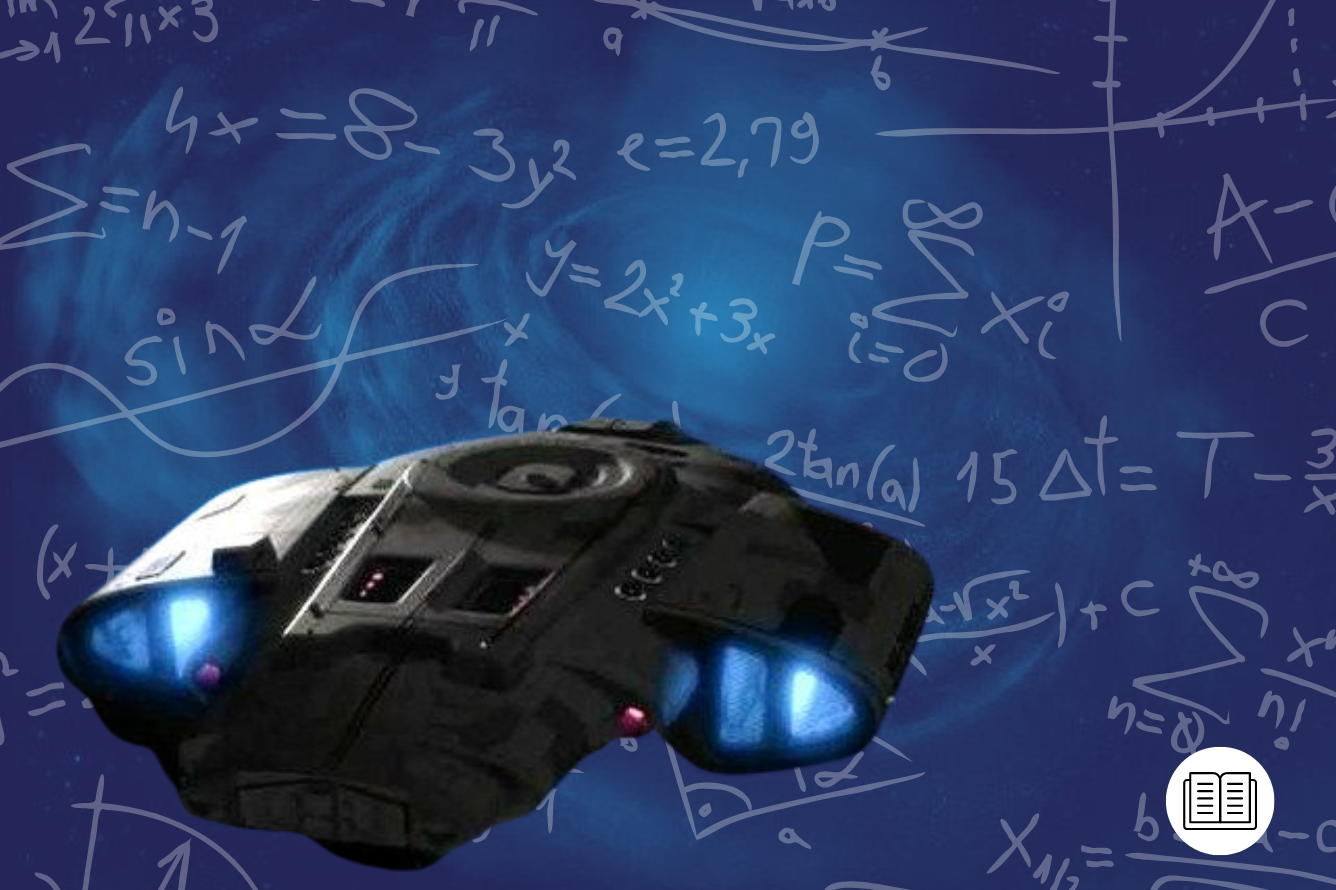
Gul Dukat and ‘Indiscretion’
Justice and morality rear their head a couple of seasons down the line, and just like Sisko eventually sees psychosis reflected in Dukat, so too must Kira address something that binds her with the Cardassian – a desire to keep behavior from the occupation repressed as long as possible. Season 4’s ‘Indiscretion’ (S4, Ep4) has Kira learning of new evidence to the crash site of a lost Cardassian prison ship, but as she sets out to learn the fate of its passengers, she’s joined by Gul Dukat, who’s suspiciously keen to reach the wreck himself. As they travel, Dukat speaks affectionately of Bajor’s progress, theorizing that it was Cardassia’s intervention, and presumably all their war crimes, that helped elevate Bajor to the galactic stage. Kira tries hard not to punch him in the face.
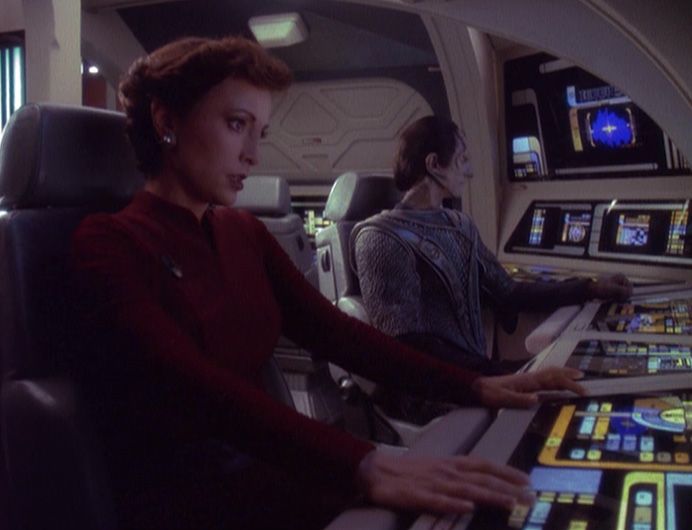
It turns out Dukat’s supposedly diplomatic motive to accompany Kira was personal; one of the lost passengers is an illegitimate daughter he sired with a Bajoran lover. It’s not until they’re on their way to the Breen labor mine the survivors are captive in does Dukat reveal he doesn’t want to save his daughter, Ziyal (Cyia Batten), but kill her – her existence is evidence of unbecoming behavior, and would be too socially and politically damaging an embarrassment to live with. Maybe the situation would have been different if the occupation never ended, but Cardassia well and truly lost that battle, and you feel like the declining status of the empire is encapsulated in Dukat’s embittered, shameful commitment to snuffing out another humiliation. It’s no surprise that Kira is resolute in stopping her sworn enemy murder a child, and maybe the context is different enough for her not to reflect on comparisons to her own indiscretion in ‘Necessary Evil’. Is it because one of these actions could be defended as morally justified? Ziyal is an innocent child, Vaatrik was a traitor. But the act of murder to conceal what we want to keep secret still connects them.
‘Indiscretion’ is about what values we internalize, and how vital and confronting the past can be made to feel. Dukat’s conviction to kill Ziyal is not for a noble cause like Kira’s indiscretion, it’s entirely selfish – his loyalty to the empire’s values means he can’t live with the shame he’ll experience when Ziyal is discovered, it will make him look weak and overly sympathetic to the people they just released from bondage. In a sense, killing Ziyal would be for a cause, but not one Dukat was aware he was advocating – preserving Cardassian honor and strength. While there was a tangible net gain for the Resistance from Vaatrik’s murder, Dukat is driven to filicide because of the effects the Cardassian Empire has already had on him. In this case, choosing to leave the past behind and forget requires someone taking another’s life. The only ethical choice is to accept the demands the past makes of us and adapt to the new reality they create.
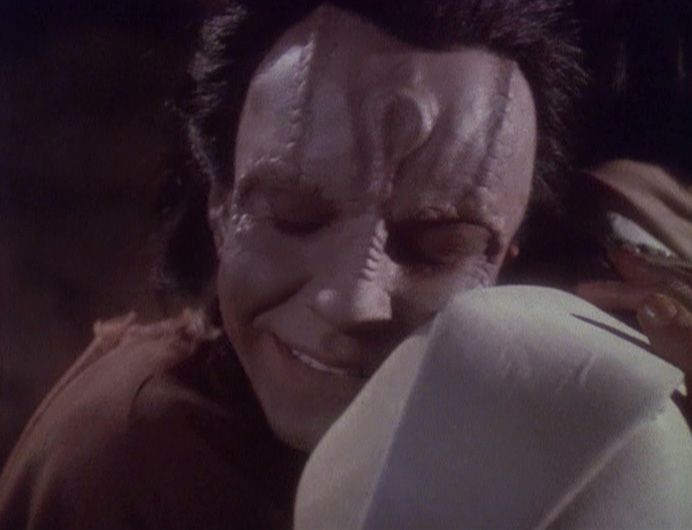
In this episode, we don’t see any flashbacks to the occupation, but clearly, it lives on through the characters and drama. Kira’s reaction to the news about the lost prison ship, and how heavily it weighs on her mind during her duties, shows she’s been brought back to the fear and uncertainty that defined her experience of the occupation. When they uncover the Breen mine, the Bajorans are shocked to learn a peace treaty has been reached; they’ve spent the last six years unconnected to the greater galaxy. Through pain and subjugation, regimes can remain intact, still imprisoning their subjects. It’s why Dukat’s choice to not only spare his daughter but to bring her back to his family on Cardassia is so resonant – Dukat has argued he was always sympathetic and merciful to Bajorans, this is one of the first instances in the present-day where he puts his money where his mouth is. He symbolizes here a changing Cardassia, one that is beginning to accept its declining status and opts for a more humanist, cooperative outlook. That is, before the Dominion War kicks off and Dukat goes, well, a little off the rails.
A note on Evil Dukat. A lot of fans were disappointed by his shift to ‘madman’ from ‘Waltz’ (S6, Ep11) onward, but even though it was a crucial development in his and Sisko’s arc, the writers’ motivation to correct the goodwill audiences felt towards the character speaks more to misreadings from the viewer. Outside of the softness of his characterization after he reunites with Ziyal, the character is only sympathetic because we haven’t witnessed the horrible things that fill his backstory. He’s a colonizer, a murderer, a racial supremacist, and after we learn of the extent of Bajoran “comfort women”, likely a rapist – it’s not as if either of the Bajoran women we know he loved could deny his advances. Even if none of this is put on screen, we do consistently see him toying with Kira’s trauma. All the audience needs to understand the extent of his monstrousness is to consider it for more than two minutes and think past the charisma of Marc Alaimo’s performance.
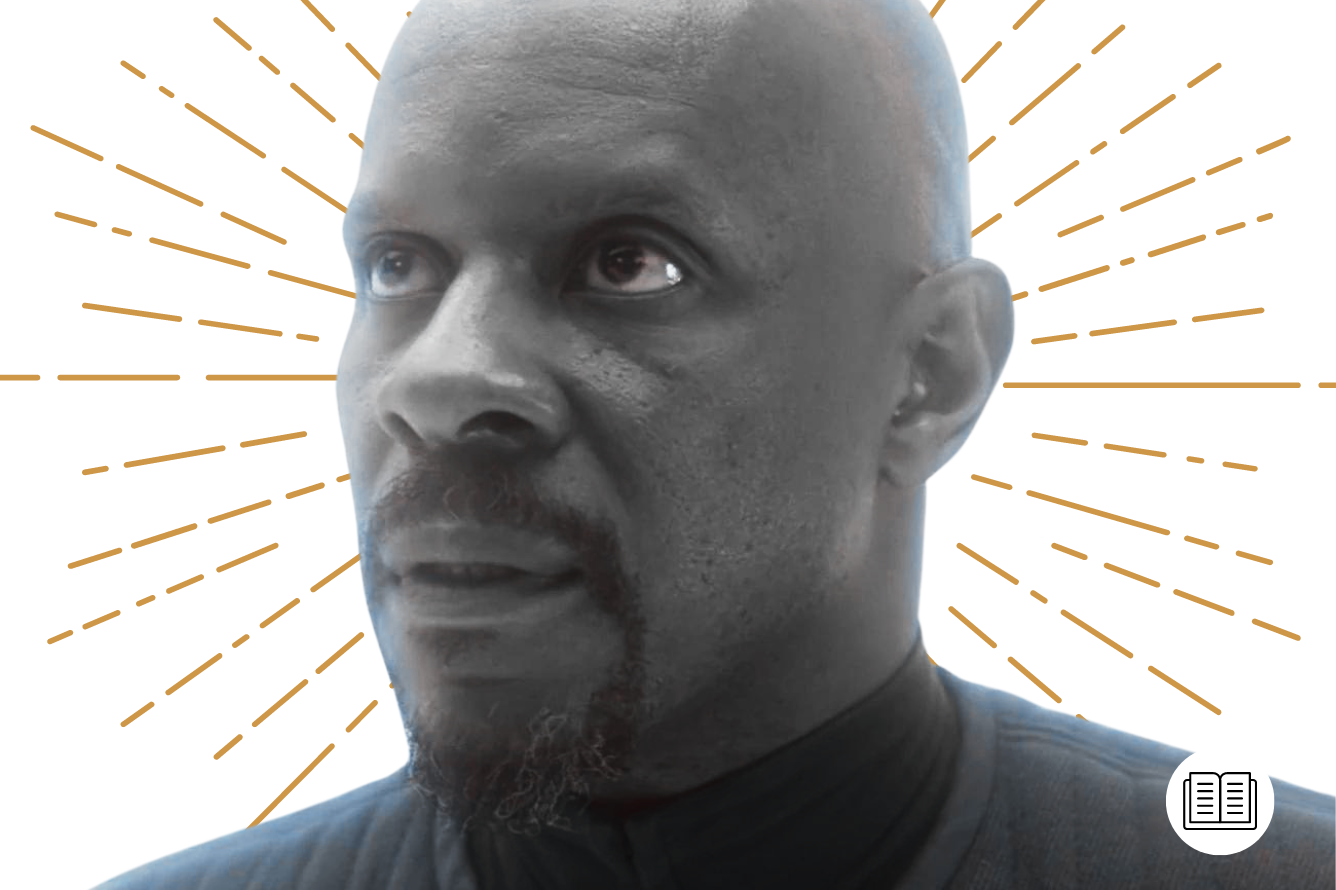
Certainty Under Siege in ‘Wrongs Darker Than Death or Night’
‘Wrongs Darker Than Death or Night’ (S6, Ep17) is a post-‘Waltz’ episode but gives us a great insight into the dual forms his evilness takes, as well as making Kira confront how a core truth she lives by completely defies the values she holds paramount. After Dukat contacts Kira to explain that his madness has made all need for self-deceptions obsolete and he wants to extend the same purifying light to Kira – by revealing he and her mother, Meru, were lovers during the occupation. Kira uses Sisko’s position as Emissary to consult the Orb of Time to transport herself back to confirm this truth first-hand, completing the trifecta of reluctant descents into the occupation that thread through DS9.
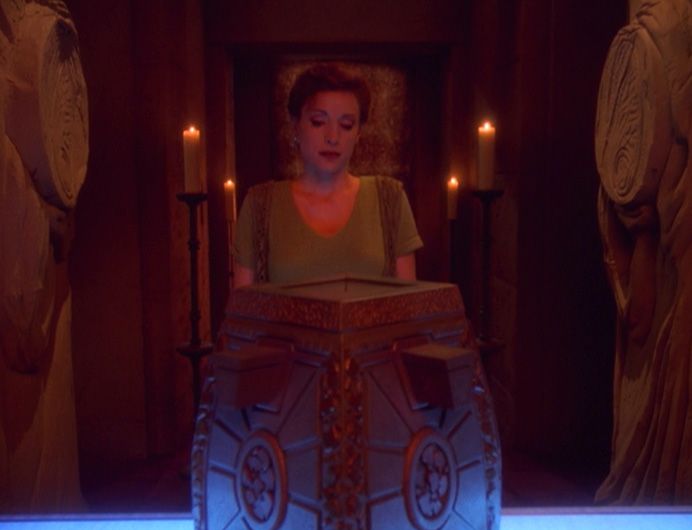
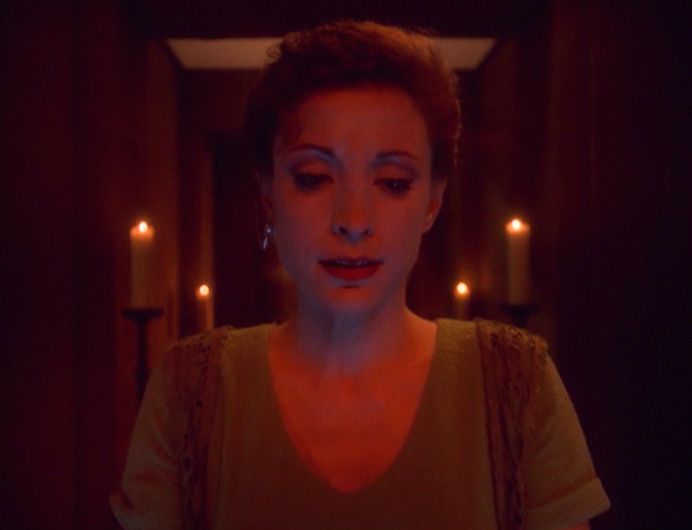
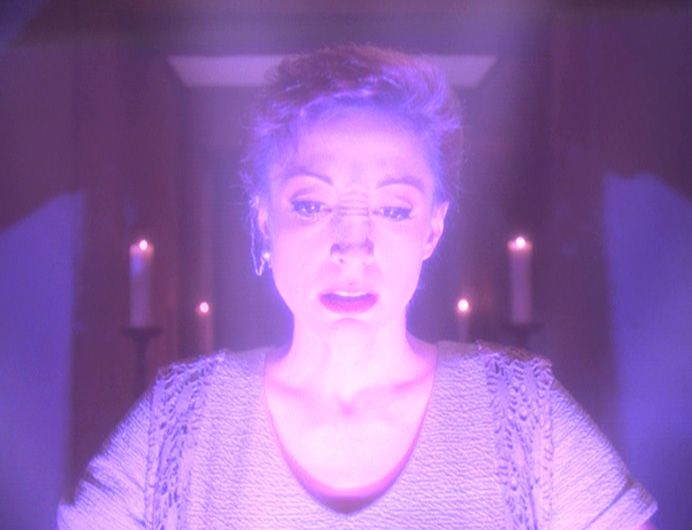
Kira joins her mother as a comfort woman – the term lifted from Imperial Japan’s sexual enslavement of women from occupied territories – where she witnesses Meru reciprocating Dukat’s affection. Again, Meru’s ability to freely consent is heavily compromised, it is still a severe psychological blow to Kira – she’s killed collaborators – so much so that she joins a proto-Resistance cell and stages an assassination on Dukat and her own mother. Nitpicking any time paradox side-effects of choosing to kill Dukat here would be reductive; it’s clear Kira is so upset at what she learns from the past that she won’t hesitate to immolate her own future. But after she watches her father explain how much Dukat is rewarding Meru’s family – a powerful, emotionally raw scene – she decides to save both of their lives.
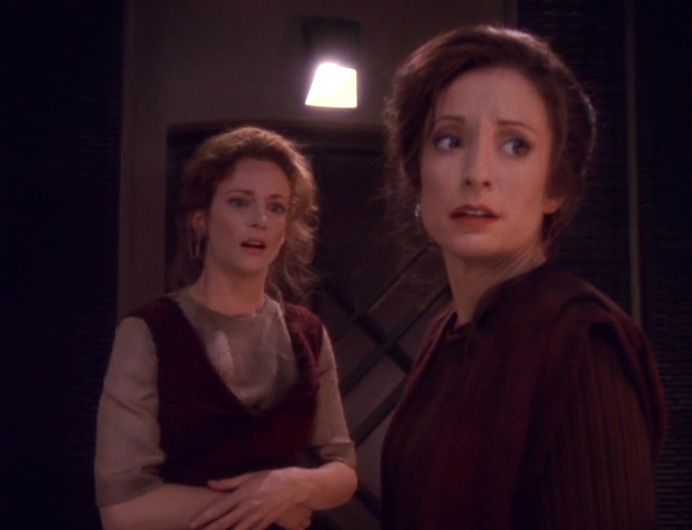
The episode ends in the present, as Kira sits with Sisko, unsure of what to think. Collaborators deserve no mercy or sympathy, but learning she profited off one – her own mother – her whole childhood, has completely destabilized her. She dived into the rabbit hole to prove her own version of history was correct and discovered the past cannot be mended to her liking. Kira’s position of moral authority in ‘Indiscretion’ is somewhat compromised after Dukat blindsides her with this betrayal, but is it even fair to judge someone based on the story we told ourselves about them, rather than who they really were? Is the bravery Kira believed she inherited from her mother now fraudulent? Or should the whole affair be laid to rest – Kira’s mother is dead, Cardassia no longer rules over Bajor, and these ethical crises only live on in Kira’s warring psychology.
The strength of this episode is compounded in this final scene, where Kira struggles with forgiving her own mother and standing by her values. She even admits she partially regrets saving her, but cannot condemn someone whose humanity she can now appreciate. It shows Kira can be unraveled, she’s not as impenetrable and robust as she wants to project, or as we’ve seen over the past six seasons. The things that appeared to define our characters – Odo’s sense of justice, Dukat’s proud authority, Kira’s Bajoran solidarity – the past proves all these are permeable, and any sense of inflexibility about these values just means we haven’t been hit by the right thing yet. DS9’s characters exist as open wounds and can be emotionally paralyzed at any moment. How do you go forward when that happens? Do you submit to change, accept you’re a different person than you tell yourself you are? Do you resist and hope you can dissuade it from taking over you? No one seems to have an answer. There doesn’t seem to be one.
This is the effect of such a terrible past for the characters in Star Trek: Deep Space Nine; the moments of unspoken anguish, and the frailty felt when they’re reminded of how incapable they are of comprehending every complication and contradiction. They make the wrong decisions, they act impulsively, and they can’t always ask for or grant the forgiveness that’s needed. Out there in the stars, where everything can be lost, we will always be vulnerable to what we choose to forget; we are only as strong as what we leave behind. It may continue to command over us until we too are laid to rest.
The cost of your membership has allowed us to mentor new writers and allowed us to reflect the diversity of voices within fandom. None of this is possible without you. Thank you. 🙂


